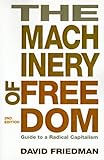Whose Lens Are You Using? « Green Baggins.
There is much wrong in this, either, radically skeptical, radically relativistic, or quasi-Newmanesque Roman Catholic view of the role of the Westminster Confession and catechisms in interpreting Scripture. But I want to mention something basic.
If you use a lens faithfully to an examine an object, such use does not preclude you from realizing if the lens is smudged in some places.
This is a pretty silly point, except it exposes a silly strategy among Protestants. Rather than dealing with exegesis, some “protestants” prefer to point out that the person that they disagree with is failing to conform to the Westminster Standards and is thereby in violation of some sort of “rule of faith.” But the exact opposite is the case. A person may be in disagreement with the Westminster standards in some place in some degree precisely because he has been more diligent in using them.
Saying that at some point the Westminster Confession and Catechisms vary from Scripture (paedocommunion, say) does not mean that one doesn’t use the Westminster standards as a “lens” for interpreting Scripture. It could mean the opposite. The interpreter might have been very careful in studying Scripture via the interpretation of the Westminster documents and noticed a tension that led him to embrace paedocommunion.

